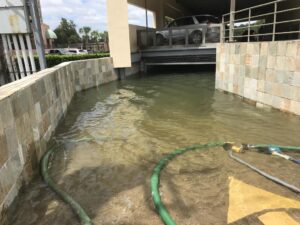
Water damage in Gastonia NC is an essential resource for all forms of life on Earth, and its availability is critical to the survival of humanity. With the increasing global population and changing weather patterns, there is a growing concern about the future availability of freshwater sources. As a result, there has been a push toward exploring unconventional sources of water, such as seawater, brackish water, and wastewater.
Seawater desalination:
Seawater desalination is the process of removing salt and other minerals from seawater to make it suitable for human consumption. There are two main desalination technologies, namely reverse osmosis and thermal desalination. Reverse osmosis is the most commonly used technology and involves forcing seawater through a semipermeable membrane that removes salt and other impurities.
Brackish water desalination:
Brackish water is water that has a higher salt content than freshwater, but lower than seawater. The desalination of brackish water is typically done using reverse osmosis or electrodialysis. Electrodialysis involves the use of an electrical current to remove salt from the water, while reverse osmosis uses a semipermeable membrane.
Wastewater treatment and reuse:
Wastewater treatment involves the removal of contaminants from wastewater to make it safe for reuse or discharge into the environment. There are various treatment technologies, including biological treatment, chemical treatment, and physical treatment. The treated wastewater can be reused for non-potable purposes such as irrigation, industrial processes, and toilet flushing.
Atmospheric water generation:
Atmospheric water generation involves the extraction of water from the atmosphere using various technologies such as condensation, dew collection, and fog harvesting. These technologies use different principles, but all involve cooling the air to condense the water vapor present in the atmosphere.
Groundwater replenishment:
Groundwater replenishment involves the injection of treated wastewater into underground aquifers to augment the groundwater supply. The treated wastewater undergoes additional treatment to remove any remaining contaminants before being injected into the aquifer.
In conclusion, the extraction of water from unconventional sources is becoming increasingly important as traditional freshwater sources become scarce. While there are various technologies available for water extraction gastonia nc, their cost and energy consumption remains a significant barrier to widespread adoption. Nonetheless, the development of innovative and cost-effective technologies will be critical in ensuring future water security.
Service Restoration
645 Cox Rd Suite A Gastonia NC, 28054
704-312-9470
